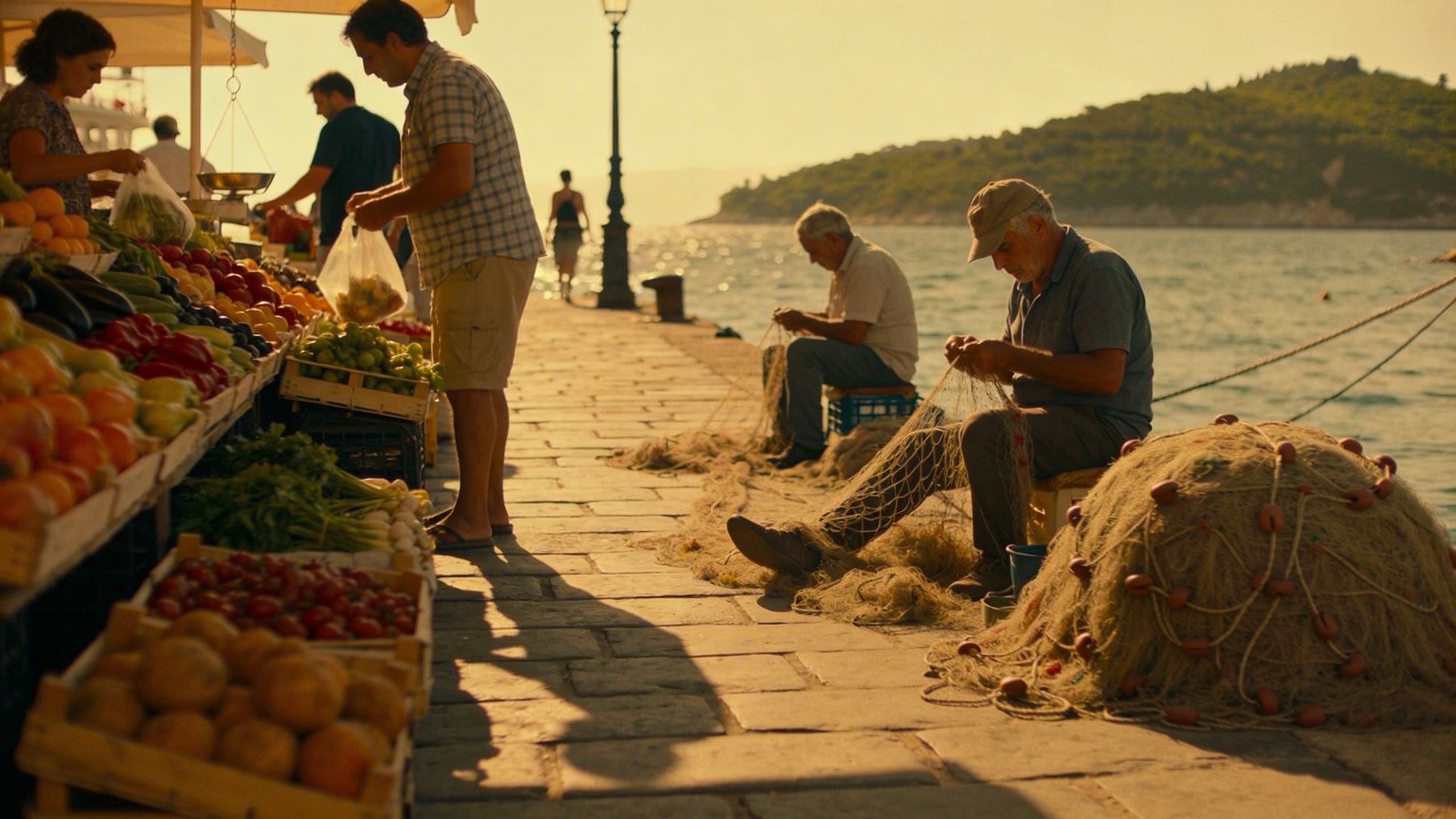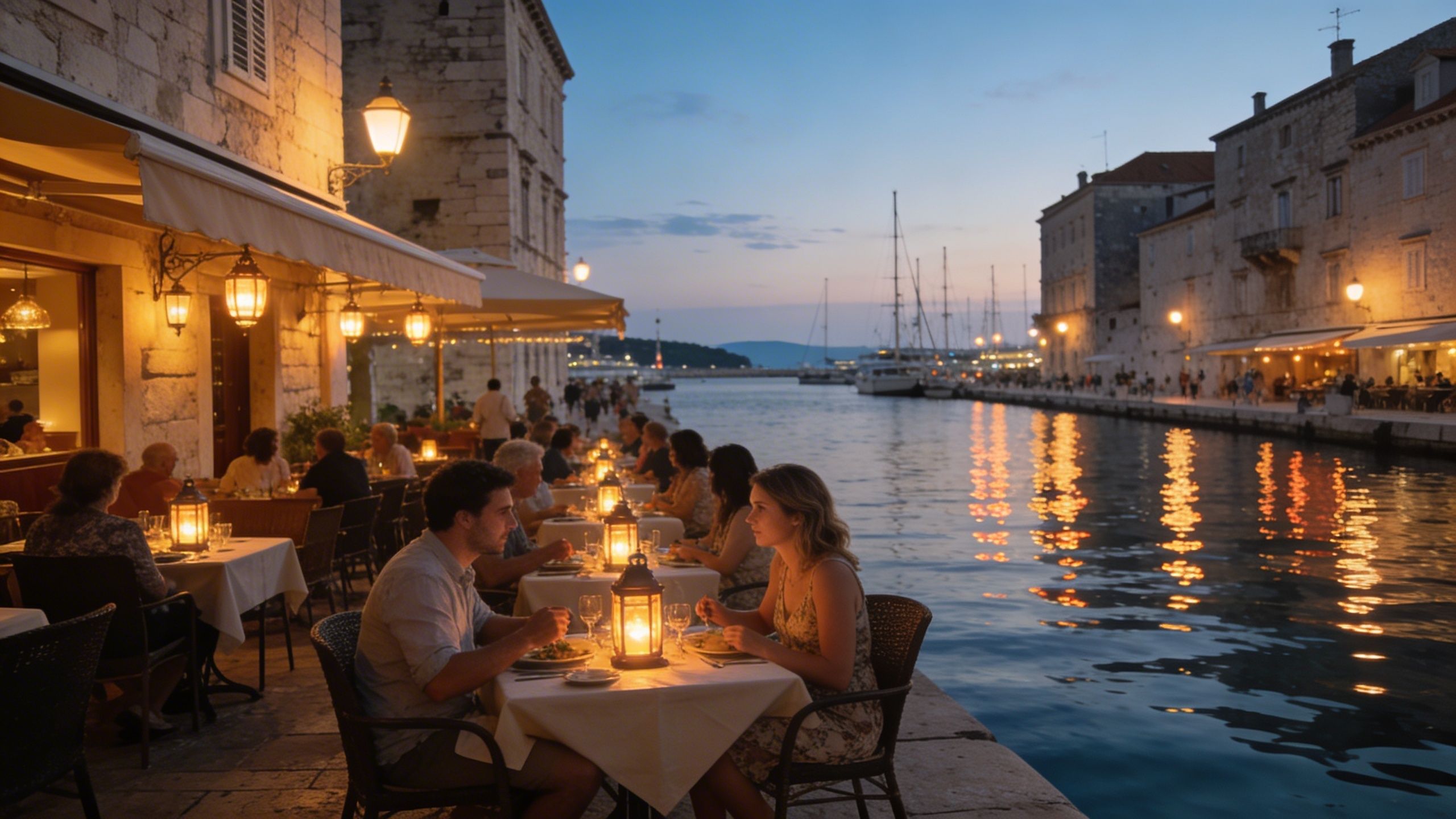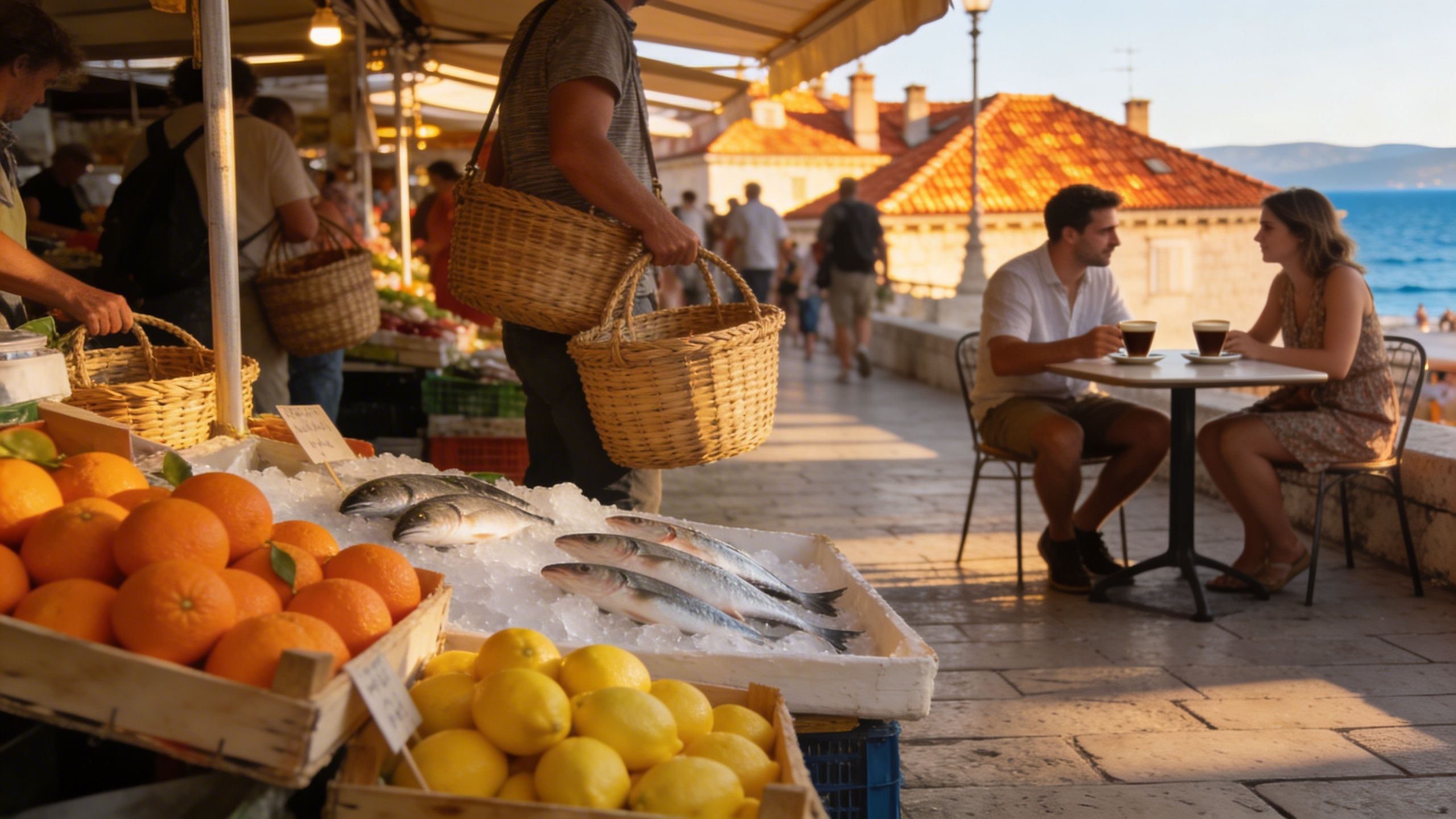Côte d’Azur vs Dordogne: Lifestyle and Market Trade‑Offs
Compare Côte d’Azur light with inland calm: lifestyle trade‑offs, regional market signals and practical steps for buyers, backed by notaire data.
Imagine waking to a boulangerie scent on Rue Saint‑Sulpice, or to cypress silhouettes beyond a stone terrace in the Dordogne. France offers these contrasting mornings: exuberant light and marine blue on the Riviera, slow, liturgical rhythms in inland market towns. For international buyers the choice is rarely only price — it is a choice of daily temperature, soundscape and neighbourly custom. This piece compares two frequently opposed propositions — the Riviera ease of the Côte d’Azur and the provincial steadiness of areas such as Dordogne and Creuse — through lived detail and current market evidence so you may decide which life the house will serve.
Living the French Life: light, language and local rituals
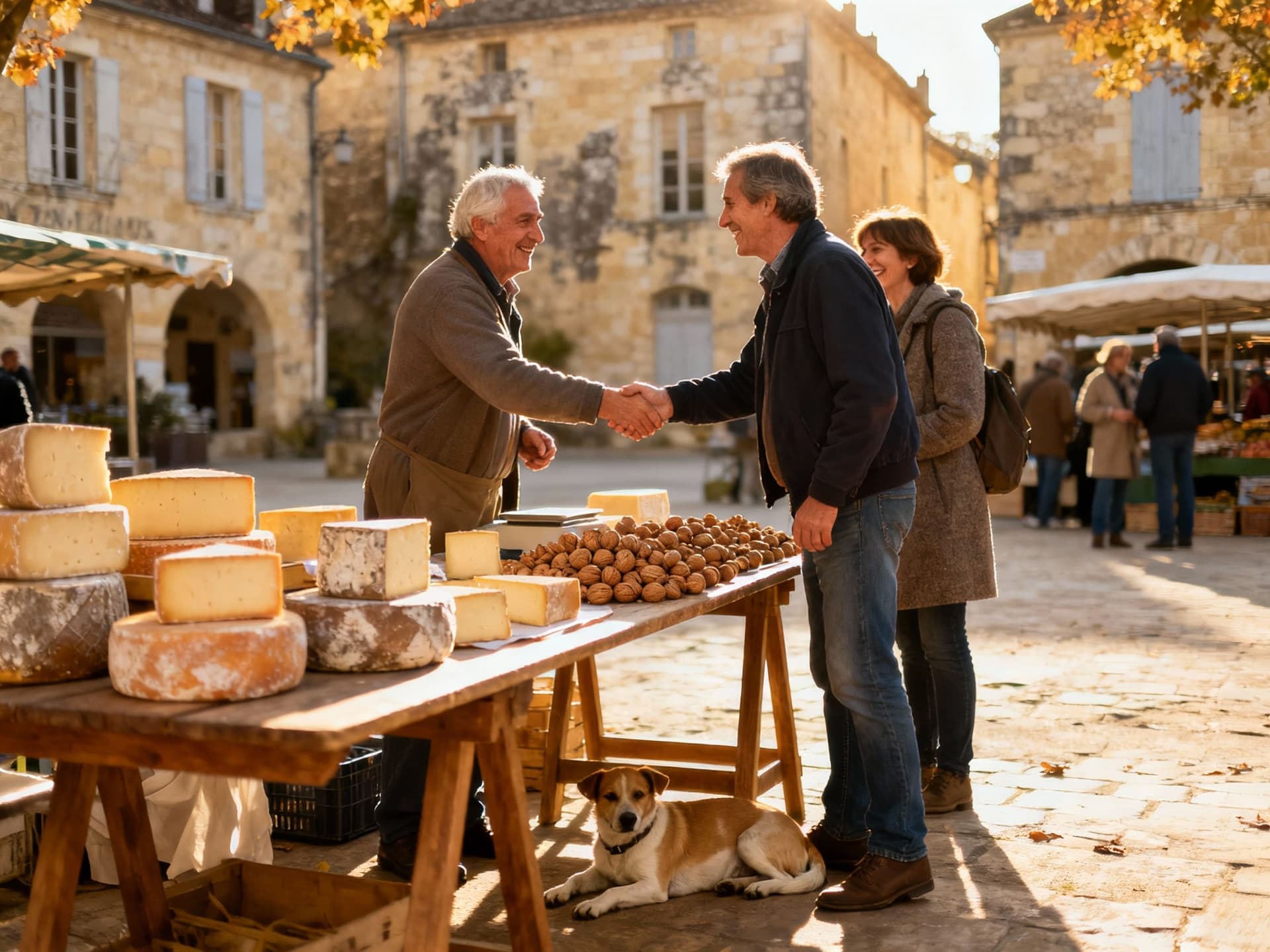
Daylight in Nice lands differently than in Périgord. On the coast mornings are punctuated by cafés opening at the quayside and a market that clears by noon; inland the day unfolds around the weekly marché, the butcher who remembers your name, and long Sunday lunches. Both rhythms reward time, but they require different practical habits — a coastal apartment often privileges compact, low‑maintenance outdoor spaces and proximity to services; a restored farmhouse asks for gardening, maintenance and an acceptance of seasonal quiet.
The Côte d’Azur: urbanity by the sea
Stroll from Place Masséna to the Promenade des Anglais and you meet a particular public life: early-morning runners, late-afternoon aperitifs on shaded terraces, ateliers and discreet galleries. Neighbourhoods differ sharply — Vieux Nice pulses with markets and intimate restaurants; Cimiez offers Belle Époque villas and museum gardens. Properties here trade on view, access and provenance: Art‑deco facades, wrought‑iron balconies and the occasional maison with mature, terraced garden.
Dordogne and inland provinces: measured, tactile living
In Sarlat or the small communes around Bergerac life is tactile: morning markets of walnuts, foie gras and chèvre, limestone houses with oak beams, and lanes where neighbours still exchange news at the bakery. Many buyers prize undisturbed gardens, vaulted cellars and the chance to restore an old property. The pace is seasonal — populous in summer, hushed in winter — which suits those seeking privacy and a stronger sense of place.
Making the move: market signals and what they mean
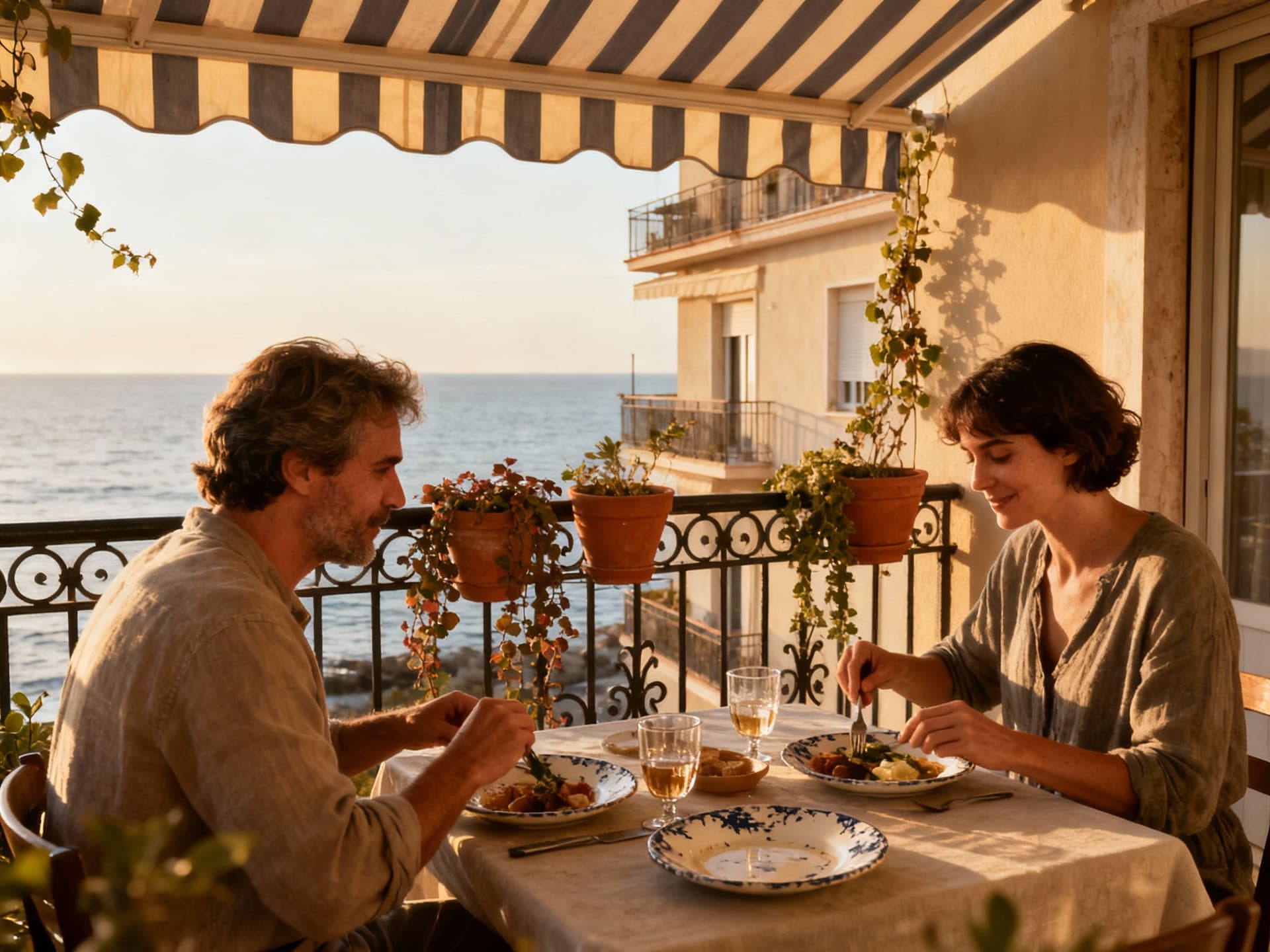
Practical decisions belong to data as much as to desire. National notaire statistics show foreign non‑resident buyers form a small but regionally concentrated share of transactions (often above 5–7% in popular departments such as Alpes‑Maritimes and parts of Dordogne and Creuse). Meanwhile recent notaire releases and market commentaries point to heterogeneous price behaviour: coastal and some provincial markets recovered earlier in 2025, while larger regional cities remain mixed. These patterns influence liquidity, resale prospects and the likelihood of competitive bidding.
Property types and daily life
Choose an apartment on Boulevard Gambetta and you choose compact rooms, city services and the sociality of terraces; choose a stone longère in Dordogne and you choose space, an outbuilding for a workshop, and investment in restoration. Consider thermal performance in older masonry, the cost of roof works, and access in winter — inland lanes can be charming until you need to bring in heavy supplies or contractors.
Working with local experts who preserve the lifestyle
- Use agents who understand provenance and daily life: look for those who can cite past restorations, recommend local artisans, and place a house in its seasonal context.
- Ask your notaire or agent for transaction history and typical holding periods in the commune — high turnover may signal holiday‑letting concentration rather than community living.
Insider knowledge: what expats often only learn later
Expats commonly assume language is the main barrier; the subtler truths concern rhythm and local expectation. In many provincial communes, social integration proceeds through practical exchange: shared work in community fêtes, reciprocal help at markets and repair trades introduced by neighbours. In coastal towns, integration can be faster but is mediated by seasonality and a more transactional property market. Understanding these social economies sooner saves disappointment later.
Cultural cues that change where you buy
- Local fêtes and mairie relations matter — a mayor’s support can expedite permits for modest restorations; learn who the mairie architect (architecte des Bâtiments de France) is if your property is in a protected zone.
- Informality in rural trades means you will often work with family firms; insist on written estimates and local references to avoid misunderstandings.
When the season deceives: a buying caution
- Visit both in‑season and off‑season before committing; what feels vibrant in summer may be silent in winter, affecting services, maintenance and rental prospects.
- Request transaction history from the notaire: ask for the last five sales on a property and the typical time‑on‑market in the commune to judge liquidity accurately.
- Factor maintenance and seasonal logistics into your operating budget — roof, heating and garden stewardship are recurring costs that differ markedly between seaside apartments and country houses.
Conclusion: choosing the life the house will support
Decide first on how you want mornings to feel — the sound of waves, or the call of a market. Then translate that into practical criteria: maintenance tolerance, proximity to services, seasonal occupancy and resale prospects. Use notaire data and local agents that speak to both culture and contract. When matched carefully, a property in France becomes not a purchase but the architecture of a life.
Relocating from London to Mallorca in 2014, I guide UK buyers through cross-border investment and tax considerations. I specialise in provenance, design integrity, and long-term value.
